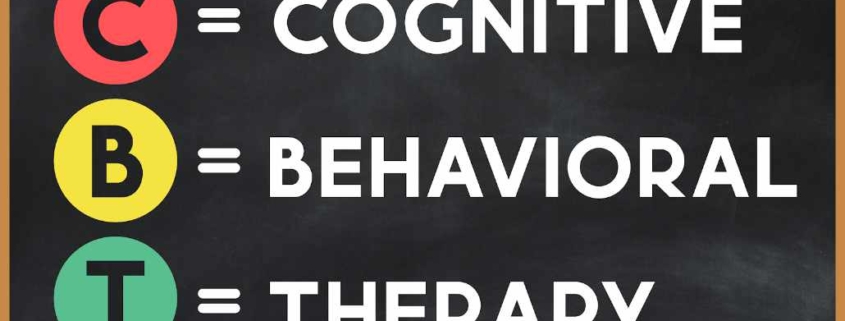How is CBT Used to Treat Alcoholism
Table of Contents
The effective treatment of alcohol use disorder depends on a multi-pronged approach. Of all the various treatment elements, the use of cognitive behavioral therapy (CBT) is the very cornerstone of addiction treatment.
CBT is an evidence-based treatment, meaning that it has been studied and shown to be effective for addiction recovery. CBT addresses the core of the addiction cycle and helps you to change the pattern of dysfunctional behaviors. To learn more about CBT, read on!
What is Psychotherapy?
Therapy is also called talk therapy because it involves meeting with a licensed therapist to discuss issues related to addiction. This encounter between the therapist and the patient can reveal the thought distortions or negative self-talk that fuels alcoholism. These meetings provide a safe space where you can work through these issues and improve your chances of success.
Therapy can be conducted in one-on-one sessions or as group sessions with a small peer group. Both of these formats are helpful for someone in addiction recovery. The one-on-one talk sessions provide a chance to open up and share things that may feel too personal in a group. The group sessions allow you to practice new skills and learn from each other’s journeys.
What is Cognitive Behavioral Therapy (CBT)?
CBT is a short-term therapy that is based on B.F. Skinner’s behaviorist model. Behavioral psychology is a theory that focuses on a person’s actions in response to stimuli. CBT combines the behavioral elements with the cognitive or thought based, aspects of human actions and decision-making.
CBT is a core treatment element in substance use rehab, as is useful in treating a range of mental health conditions. It is well suited for treatment programs because it can produce positive changes in a short period of time.
Why is Best CBT for Alcoholism?
The reason CBT is effective for treating alcoholism is that it focuses on the thoughts and behaviors associated with addiction. By practicing CBT techniques you can make meaningful changes in the way you respond to triggers or stimuli. Over time, you learn to make healthier behavior responses when you encounter a trigger that may otherwise lead to relapse.
CBT takes time to become reflexive. First, you must learn how to identify unhealthy thought and behavior patterns and then create new responses. With practice, these new healthy responses become engrained, acting as a primary coping skill in recovery.
Real World Examples of CBT in Action
It helps you grasp the concept of CBT if you have a real life example of how it works. Suppose you are in recovery and you lose your job, your girlfriend, or a parent dies. These are all powerful triggers for relapse.
Without the use of CBT skills, you might become filled with negative thoughts and despair. Those emotions are so hard to bear, that the temptation to drink can overpower you.
With CBT, though, you learn how to manage your thoughts and emotions. Instead of buying into the idea that your life is over so you might as well drink, you reshape that message. Examples might include:
- This is a huge setback, but I am in control of how I decide to manage it.
- I am disappointed (or sad or angry), but instead of reaching for a drink I will attend a meeting and meet with my sponsor.
- I am struggling with this sad event, so I will meet with my therapist asap.
Benefits of CBT for Alcoholism
CBT can help you sustain sobriety in several ways. These include:
- Boosts self-esteem. CBT turns negative self-talk into positive, constructive thoughts and actions. Making positive thinking a new habit in recovery will boost your self-esteem.
- Encourages goal setting. In CBT treatment you work with the therapist to create new personal goals. You may want to make in the way you relate to people, situations, or thoughts that might be triggering.
- Provides valuable coping skills. CBT teaches you to take a pause before reacting to a stressor. This gives you a few seconds or minutes to reroute your initial response toward a more productive path. In this way, CBT becomes an important coping skill in recovery.
- Helps you identify and avoid triggers. The main purpose of CBT is to identify your triggers and learn new healthy ways to manage them. CBT also helps you learn how to avoid these triggers in the first place, which further reduces the risk of relapse.
- Helps prevent a relapse. By practicing these new positive thought-behavior patterns, you become skilled at choosing a healthy behavioral response when triggered. This helps you avoid a relapse.
Other Effective Therapies for Alcoholism
CBT is just one of several effective therapies for the treatment of alcohol use disorder. In rehab, it is common for CBT to be used along with one or more of these other types of therapy. These include:
- Dialectical Behavior Therapy (DBT): DBT focuses on shifting negative self-messaging and self-criticism to acceptance, while also making improvements in four key areas. These include practicing mindfulness, improving interpersonal effectiveness, learning to better regulate emotions, and improving distress tolerance.
- Contingency Management (CM): CM is an incentive-based therapy that provides small rewards in exchange for continued sobriety. An example of this is the use of alcohol screening tests. A clean drug or alcohol test is rewarded with a gift card, points toward a goal or prize, or earning a privilege.
- Motivational Enhancement Therapy (MET): MET is an approach that helps you overcome any resistance that keeps you from committing to sobriety. During intake, the therapist may pick up on this ambivalence and help to persuade you to embrace recovery using MET.
- Solutions-Based Therapy: SBT is a goal-oriented and patient-driven approach that guides you toward achieving your desired recovery goals. SBT helps you identify your own personal strengths while also creating strategies for overcoming any barriers.
CBT, along with other treatment methods, is a proven method for making positive changes in thoughts and behaviors.
Annandale Behavioral Health Uses CBT for Alcoholism Treatment
Annandale Behavioral Health is a trusted resource for the treatment of alcohol use disorder. If you are in need of treatment, please reach out today at (855) 778-8668.







